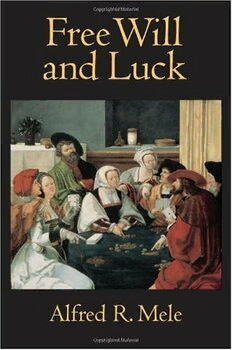
Free Will and Luck PDF
234 Pages·2006·2.197 MB·English
Most books are stored in the elastic cloud where traffic is expensive. For this reason, we have a limit on daily download.
Preview Free Will and Luck
Description:
Mele's ultimate purpose in this book is to help readers think more clearly about free will. He identifies and makes vivid the most important conceptual obstacles to justified belief in the existence of free will and meets them head on. Mele clarifies the central issues in the philosophical debate about free will and moral responsibility, criticizes various influential contemporary theories about free will, and develops two overlapping conceptions of free will--one for readers who are convinced that free will is incompatible with determinism (incompatibilists), and the other for readers who are convinced of the opposite (compatibilists). Luck poses problems for all believers in free will, and Mele offers novel solutions to those problems--one for incompatibilist believers in free will and the other for compatibilists. An early chapter of this empirically well-informed book clearly explains influential neuroscientific studies of free will and debunks some extravagant interpretations of the data. Other featured topics include abilities and alternative possibilities, control and decision-making, the bearing of manipulation on free will, and the development of human infants into free agents. Mele's theory offers an original perspective on an important problem and will garner the attention of anyone interested in the debate on free will.
See more
The list of books you might like
Most books are stored in the elastic cloud where traffic is expensive. For this reason, we have a limit on daily download.
